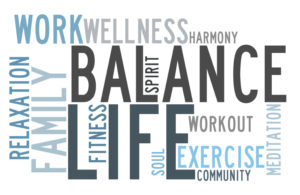 Our culture is to be “on” 24/7. Being plugged in or connected at all times has definitely blurred the lines between work and home. Executives from a decade or more ago may still struggle with finding a balance; however, younger generations are finding work-life integration to be a much better shift than the idea of work-life balance.
Our culture is to be “on” 24/7. Being plugged in or connected at all times has definitely blurred the lines between work and home. Executives from a decade or more ago may still struggle with finding a balance; however, younger generations are finding work-life integration to be a much better shift than the idea of work-life balance.
This shift happened as recently as 2014 with C-suite executives finding that balance isn’t something which comes easy; in fact, most execs were known to burn the candle at both ends at work while neglecting their personal lives. Knowing they had to revamp this old notion and support a more balanced approach to working, if not for themselves but to mentor good habits for their employees, executives reshaped this work-life balance conception into a work-life integration that works much better for the company as well as family members.
Integrating work needs with family needs means answering emails while watching a child’s soccer game or face timing a colleague for a short meeting during family get togethers. These two examples are how to integrate your work with your life.
Here are a few recommendations on finding your unique approach to integrating work and life.
- Decide what’s most important. Your employees will notice your absence from a big event, but they’ll remember why you’re gone when you tell them that you are moving your youngest daughter into her college dorms. They’ll respect your decision.
- You have to compromise on both sides and then live with your decisions. Some days you will get home after your young children have gone to sleep, but you have to move on and not dwell on your missed family time. Work and family time are both rewarding, so don’t guilt trip yourself.
- If you feel burnout, then discover what it is that is causing it, like maybe something causing you to feel resentful of your work. Figure it out and then make time for those missed moments in the future.
- Flexibility is key; don’t be confined to an office. Make flexible situations work best for your life: hold your people and yourself accountable for what is required to be done and not for how long they work or how much “face time” they have with people during the day. Also, it’s okay to leave the office early for a family dinner if you leave some time at the end of the night to finalize the workday.
- Allow your personal and professional lives to overlap. It’s okay to leave early to buy someone a gift or to not shut work down at 5 p.m. everyday but rather answer those emails as you can at home. In other words, don’t chain yourself to a desk. And during those time when one side needs you longer or more, let the other side see it. Your family will be proud of your work and support you when they see you urgently completing a task/event/priority, especially if they see you also put work aside when a family project/event/priority needs your time.
- Most importantly, never miss those once-in-a-lifetime events. It’s okay to miss a few of the hundreds of sporting games, but don’t miss the championship. Be there 100 percent at the big events, which means this isn’t the time to check emails. Know the difference between the everyday things vs. the big items requiring your full attention.
- Lastly, you have to watch out for your employee’s work-life balance just as much as your own. Delay some deadlines or shift priorities when planning their time off too.
Find that harmony in your life by combining your work and life because in the end, “it’s all living.”
